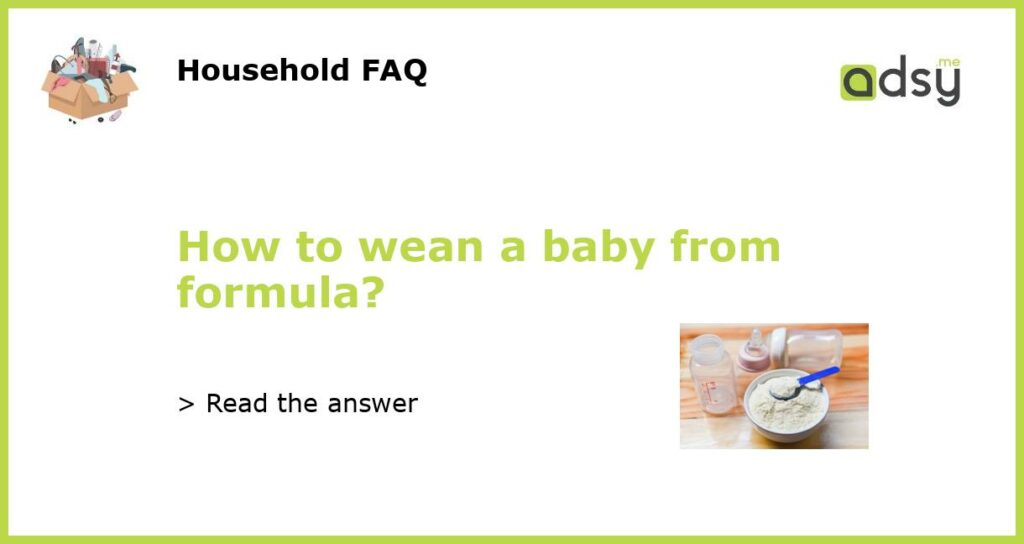Understanding the Weaning Process from Formula
Weaning a baby from formula is a major milestone for both parents and their little ones. It’s usually a gradual process that involves introducing solid foods, making formula bottles in smaller quantities, and eventually eliminating formula altogether. The decision to wean depends on the baby’s age, readiness, and preferences. Some babies may naturally prefer solid foods, while others may take more time to transition. Generally, most pediatricians recommend waiting until the baby is six months old to introduce solids, but some may suggest starting earlier or later depending on the baby’s development.
What to Expect When Weaning from Formula
Weaning from formula can be a challenging process for some babies, who may resist or reject solid foods at first. It’s essential to be patient and go at the baby’s pace while gradually increasing the amount and variety of solid foods. Experts recommend starting with smooth, pureed foods, such as vegetables, fruits, and cereals, and then gradually introducing chunkier or mashed foods. It’s also crucial to offer a variety of foods to ensure that the baby gets all the nutrients they need for growth and development.
Tips for Successfully Weaning from Formula
Parents can make the weaning process more manageable by following some practical tips and strategies, such as:
- Introducing one new food at a time to detect allergies or intolerances
- Offering small amounts of solid foods throughout the day, such as during mealtimes and snacks
- Gradually reducing the number of formula bottles and replacing them with solid foods
- Encouraging self-feeding by offering soft finger foods that babies can hold and eat on their own
- Making mealtime fun and engaging by using colorful plates, utensils, and serving different textures and flavors
When to Seek Help During the Weaning Process
Weaning from formula can be a challenging and emotional process for both parents and babies. While it’s expected for babies to experience some resistance or fussiness, certain signs may indicate a problem that requires medical attention, such as:
- Refusal to eat or drink for an extended period
- Vomiting or diarrhea that persists for more than a few days
- Unexplained weight loss or failure to gain weight
- Constipation or intestinal discomfort
- Signs of dehydration, such as dry mouth, sunken eyes, or reduced urine output
In such cases, parents should seek guidance from their pediatrician, who can assess the baby’s health and recommend appropriate interventions.
Celebrate the Weaning Milestone
Weaning a baby from formula is a significant milestone for both parents and their little ones. It’s a time to celebrate the baby’s growth and development and to enjoy the new adventures of solid foods. While the weaning process can be challenging, it’s also an opportunity to bond with the baby, explore new tastes and textures, and promote healthy eating habits that last a lifetime.






